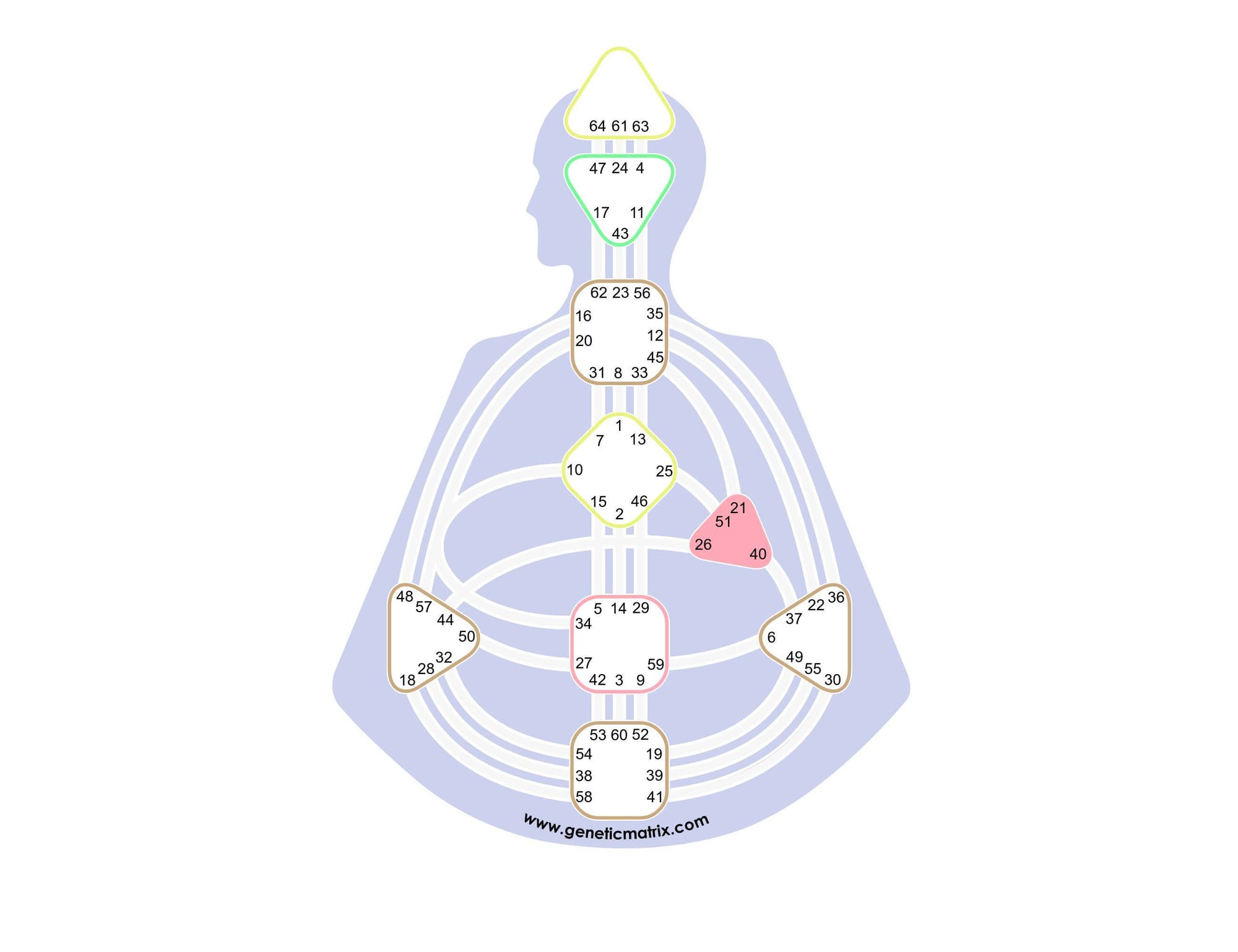The Defined Will Center in Human Design - "Where there is a will, there is a way"

Human Design is a unique system that combines principles from astrology, the I Ching, Kabbalah, and the chakra system to offer insights into a person's personality, potential, and life path.
One of the critical elements of Human Design is the Will Center, also known as the Heart Center or Ego Centre. This centre is one of the nine energy centres in the Human Design chart, and its definition or lack thereof has a significant impact on how a person experiences and expresses willpower, self-worth, and material desires.
Understanding the Will Centre
The Will Centre is located just below the Throat centre and to the right of the G centre in the Human Design Bodygraph. It governs themes of willpower, courage, ego, self-worth, materialism, and the ability to commit.
The Will Centre is a motor centre, meaning it generates energy and drives action. When defined, this centre provides consistent access to these themes, influencing how individuals assert themselves and their desires.
Characteristics of a Defined Will Center
When the Will centre is defined in an individual’s Human Design chart, it is coloured in and connected to other centres through channels. Here are the key characteristics of individuals with a defined Will centre:
- Consistent Willpower: These individuals have a consistent and reliable source of willpower. They can muster the energy and determination to pursue their goals and ambitions, often pushing through challenges that may deter others.
- Strong Sense of Self-Worth: A defined Will centre typically indicates a strong and stable sense of self-worth. These individuals value themselves and their contributions, often seeking recognition and validation for their efforts.
- Material Desires: People with a defined Will centre are often motivated by material success and security. They have a natural drive to acquire resources, achieve financial stability, and enjoy the finer things in life
- Commitment and Integrity: These people are known for their ability to make and honour commitments. They value integrity and expect the same from others, often being seen as reliable and trustworthy.
- Courage and Leadership: The defined Will centre provides a natural inclination towards leadership and courage. These individuals are often seen as assertive and capable leaders who are willing to take risks and stand up for what they believe in.

Challenges for Those with a Defined Will Centre
While a defined Will centre brings many strengths, it also comes with its own set of challenges:
- Overworking: The consistent access to willpower can lead to overworking and burnout. These individuals may push themselves too hard, driven by their desire for success and recognition.
- Stubbornness: A strong will can sometimes translate into stubbornness. Those with a defined Will centre may have difficulty adapting or compromising, sticking to their path even when flexibility is needed.
- Pressure to Prove: There can be an inherent pressure to constantly prove their worth and capabilities. This need for validation can lead to stress and anxiety if not managed properly.
- Material Obsessions: The drive for material success can sometimes overshadow other aspects of life. These individuals may become overly focused on acquiring wealth and possessions, potentially neglecting relationships and personal well-being.
Strategies for Balancing the Defined Will Centre
To harness the strengths and mitigate the challenges of a defined Will centre, individuals can adopt the following strategies:
Self-Care and Rest: It is crucial for these individuals to prioritise self-care and rest. Balancing periods of intense work with adequate downtime can prevent burnout and maintain overall well-being.
- Mindfulness and Flexibility: Practicing mindfulness and cultivating flexibility can help manage stubborn tendencies. Being open to new perspectives and willing to adapt can lead to more harmonious interactions and better decision-making.
- Healthy Boundaries: Setting and maintaining healthy boundaries is essential. This includes knowing when to say no and recognising when they are pushing themselves too hard in their pursuit of goals.
- Valuing Non-Material Aspects: Fostering appreciation for non-material aspects of life, such as relationships, personal growth, and inner fulfillment, can create a more balanced and satisfying life experience.
The defined Will centre in Human Design is a powerful and dynamic aspect of an individual's chart, offering consistent willpower, a strong sense of self-worth, and a drive for material success. While these attributes can lead to significant achievements and recognition, they also come with challenges that require mindful management.
By understanding and balancing the energies of the defined Will centre, individuals can lead fulfilling lives, achieving their goals while maintaining their well-being and nurturing their relationships.
Download the full article below